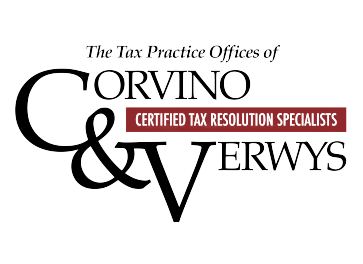Speaker On Exit Strategies For Business
How to Sell Your Business
If you have a business that is not growing, or at a loss, or is stuck in a cycle, it is most likely not a good business to sell. If you are in this situation, you have a few options. You can either continue to try and fix the problems that have occurred, or you can find a way to exit the business. This can be a lot of work, but you can sell your business with the help of business valuation. If you decide to sell your business, you will need a professional to help you with the valuation. This is because the value of a business depends on many different factors. And sometimes a value can be derived from one single factor which makes the valuation process quite difficult. To calculate a business value, you will need to assess all its assets and liabilities. If you want to learn more about this process, you can read our guide on the basics of business valuation here. However, before diving into the valuation, it is very important to define your goals.
· What do you want to achieve with the sale?
· Is it an exit or a strategic acquisition?
· Do you want to diversify your portfolio or just sell an asset?
· Do you need the funds? Or do you want to use them to pay for the lease?
· The evaluation, it is very important to define your goals.
· What do you want to achieve with the sale?
· Is it an exit or a strategic acquisition?
· Do you need to raise money to pay for the lease?
· How much cash do you need for your exit?
What is a company exit strategy?
An exit strategy, or plan, outlines how a business owner plans on selling their investment in their business. Exit strategies help business owners have an out if they want to sell or close the business. Entrepreneurs must create a business exit plan before starting a business and tweak it as the business grows and the market changes. A company exit strategy is the action plan you have made to move your business from your hands to another owner or investor. It's a matter of looking at your business as a growing business, even though you have built it, and consider your options for exiting the company, both now and in the future. In this course, I will walk you through the initial steps of building a business, including the decision to build a company, writing a business plan, deciding on the legal structure, and setting up a business. You will learn how to sell your company, with all the legal and tax aspects. It's very important to sell your business while it is still valued. But many companies never get the opportunity to sell their company because they do not know what to do when they reach the end of their lives. Become a successful small business owner by starting your business with a well-thought -out plan for what you want to achieve and how you are going to achieve it. The most common business failure is to do not have a business plan. Every business owner is responsible for defining their own exit strategy and to make sure that the options available to them are sufficient for their needs. This is why business owners who have a business plan are three times more likely to be successful. But for the many business owners who don't have a plan, not surprisingly, they have an even higher probability of business failure. Before starting a business, it's important to have a plan.
If you have a plan for your business, then you can be confident that you have a structure that allows you to reach your goals. A solid business plan will give you the confidence you need to start and grow your business.
Business Exit Strategy: Where do you fit in?
If you are thinking about transitioning out of your business, here are some facts from business owner studies over the last few years that you should understand and consider.
· 20% of businesses wanting to sell are actually ready to sell
· 5% of the businesses sold are at a value the owner wanted.
· 80–90% of an owner’s wealth is locked up in their business.
· 50 percent of all business exits are forced and do not occur on the owner’s terms or timeline. Usually one of the five D’s is the cause: death, disability, divorce, distress, or disagreement.
· Recent events are further complicating the exit process as more businesses owners are looking to exit. A recent survey by the Exit Planning Institute identified that 71% of business owners are planning to exit in the next 5 years and 92% within the next 10 years. Interestingly 88% of respondents were under the age of 50.
Your business is one thing, but your life is another. Do you really need to sell your business? And how are you going to do it? You may be looking for answers to these questions, but the answers are often missed because they are usually lost in translation. There is an old saying that says: "If you don't know where you are going, any road will take you there." This blog post is a road map to help you find your destination.
The reasons you want to sell your business are many. But you must follow a set of steps to successfully sell your business. The first step is always to build a process around selling your business. You must have a plan, and you need to understand your financial situation and your exit options.
If you don't know who your potential buyers are, you will never know how much money your business is worth, or how to maximize the value of your business. In this article, I'm going to show you how to build a list of potential buyers for your business.
Steps to developing your exit plan
Selling your business, especially if it's your own, can be a difficult decision. Don't just close the doors and take the money that is normally the worst thing to do. It's a decision you have to consider thoroughly. There are often many factors to take into account, including:
•Are you still too young to sell?
•How much money will you get?
You've prepared for sale. This process consists of four steps:
· Identify what your business is worth
· Determine how to price it
· Build a list of buyers
· Prepare for sale
You don't have to do an exact evaluation of your business, but you need to come up with a evaluation that is realistic for you and your partner. This evaluation should be based on your financial projections and goals.



















